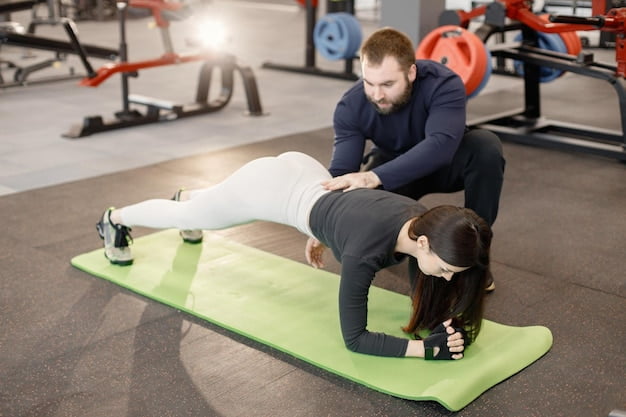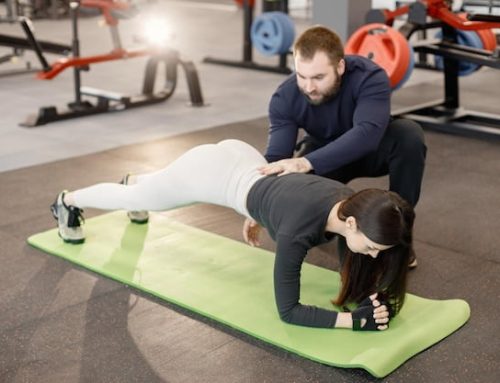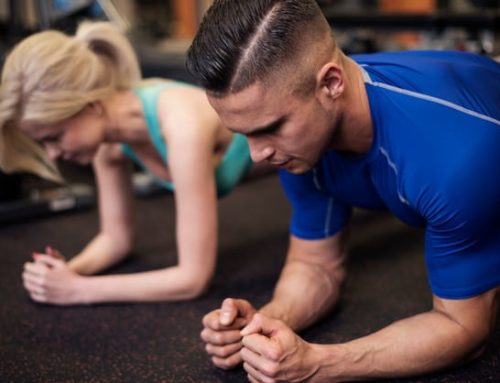The Importance of Sports-Specific Training
Training for sports is different than general fitness training. Athletes require specific exercises tailored to their sport for optimal performance. While general fitness helps in overall health, sports-specific training is essential to improve athletic performance. Sports-specific training aims to enhance specific skills, movements, and physical abilities required for a particular sport.
The Role of Compound Exercises in Sports-Specific Training
Compound exercises are exercises that target more than one muscle group at the same time. These exercises stimulate multiple muscle groups and are beneficial for sports-specific training. Compound exercises are efficient as they save time and increase overall strength. They also promote functional movements that are necessary for specific sports. Some of the most effective compound exercises for sports-specific training are:
| Exercise | Muscle Group Targeted |
|---|---|
| Deadlift | Glutes, Hamstrings, Quadriceps, Back, and Core |
| Squat | Quadriceps, Hamstrings, Glutes, and Core |
| Bench Press | Chest, Triceps, and Shoulders |
| Rows | Back, Biceps, and Forearms |
| Clean and Jerk | Full body: Legs, Back, Shoulders, and Core |
What Exercise Hits the Most Muscles?
One of the most effective compound exercises that target the most muscles is the deadlift. It is a full-body exercise that mainly targets the glutes, hamstrings, quadriceps, back, and core muscles. Deadlifts are an integral part of sports-specific training as they build explosive power, strength, and endurance. Other exercises that hit many muscles at once include squats, bench press, rows, and clean and jerk.
The Importance of Plyometric Exercises in Sports-Specific Training
Plyometric exercises are high-intensity exercises that use explosive movements to develop power and speed. These exercises improve athletic performance by increasing muscle strength and coordination. Plyometric exercises are useful in sports-specific training as they mimic sports-specific movements. Some of the most effective plyometric exercises for sports-specific training include:
| Exercise | Muscle Group Targeted |
|---|---|
| Box Jumps | Legs and Core |
| Burpees | Full body |
| Jumping Lunges | Legs and Core |
| Medicine Ball Throws | Full body |
| Jumping Squats | Legs and Core |
The Benefits of Sports-Specific Training
Sports-specific training offers several benefits to athletes. These benefits include:
- Improved Athletic Performance: Sports-specific training enhances athletic performance by improving strength, speed, power, and endurance.
- Injury Prevention: Sports-specific training reduces the risk of sports-related injuries by strengthening muscles and increasing flexibility.
- Optimal Body Composition: Sports-specific training promotes optimal body composition, which is necessary for specific sports.
- Better Mental Health: Sports-specific training improves mental health by reducing stress and promoting positivity.
- Increased Confidence: Sports-specific training increases confidence and self-esteem as athletes improve their performance.
Conclusion
Sports-specific training is essential for athletes to improve their performance and prevent injuries. Compound exercises and plyometric exercises are effective in sports-specific training as they target multiple muscle groups and mimic sports-specific movements. Deadlifts are the most effective exercise that hits the most muscles. Plyometric exercises are also beneficial as they develop power and speed. Sports-specific training offers several benefits, including improved athletic performance, injury prevention, optimal body composition, better mental health, and increased confidence.






